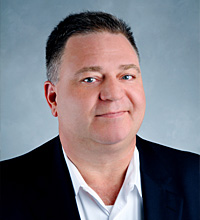Is “Ready, Willing and Able” Enough?
As practioners who work with business families, we are often asked to bring our outsider’s perspective to help families objectively evaluate the capabilities of their human resources.
In non-family companies and other organizations, these HR tasks are often handled in very systematic ways, with people concentrating on the business functions that employees must handle, and whether or not they are well equipped to handle their roles.
In family businesses, however, there are many other issues that come into play, thanks to the overlap of the business circle with the family circle.
It used to be that we tried to help the leading generation understand the importance of ensuring that the rising generation be “Ready, Willing and Able” to participate in the business. These three items are still very important to consider, but I will argue that they are no longer necessarily sufficient.
Before we get to the new important strengths that business families should be evaluating, let’s quickly look at some of the reasons why the big three–ready, willing and able–are still so important. I will run through a quick “what if” for circumstances where each of them is missing.
- If we take a typical family business with a NextGen member who is willing and able to assume a key role, but who is not deemed ready, there are likely to be some hiccups along the way, as missteps are committed, and the new young leader learns the ropes and confronts a steep learning curve.
Not the end of the world, as willingness and ability will go a long way to counteract a lack of readiness. As each year passes, this issue will likely fade away as experience is gained.
- In the second scenario, where someone is ready and willing, but not able, there can be serious problems, from the get-go, and for many years into the future as well. Putting people into key positions affects the whole company, and sticking someone into a role for which they do not have the skills and abilities can jeopardize the entire operation.
A mistake of this kind is also very hard to recover from, because the person responsible for the poor choice is often the same person who is expected to correct the mistake. But if someone puts the person in the wrong place because he or she was blind to the candidate’s shortcomings, how likely will he or she have the wherewithal to correct it?
- Lastly we have people who are ready and able, but unwilling to step into a key role. A typical scenario involves an entrepreneur who insists that the children get a good education and start a career that does not rely on the family business, and then later laments that nobody is interested in seeing the dream live on after the founder is gone.
Solutions here can range from selling the business to outsiders, selling to non-family management or having the family concentrate on an ownership role and hiring professional management to run the company.
In a perfect world, when helping family business clients put NextGen family members into key roles, the advisor would do well to ensure that he/she evaluates everyone properly and makes sure that everyone is ready, willing, AND able to handle the roles. But these days, I think that there are a few other traits that we should add to the list.
My Perspective
Like many family business practitioners, I was born and raised in a family business. I was prepared to take over a manufacturing company that my father started, and as his only son, I felt a tremendous obligation to carry on the family business.
I therefore prepared for my role, but as I returned home at 26 with my MBA, things changed and we ended up selling the operations during my first six months there. For the past 20-some years I have been left to manage what became our family office.
Since my Dad passed away six years ago, I have reorganized our investments and instituted regular family meetings to ensure that everyone is informed and on-board with our progress.
My belief is that not only should NextGen leaders be ready, willing and able, but also adaptable and realistic as well as stewards, i.e. someone who understands stewardship.
Adaptable
In a business family, you do not know what is going to come your way from one year to the next. When my Dad built his company, it truly was like one of his children, but when push came to shove, he was able to treat it as an asset and sell it off to preserve what he had been working for, namely his family.
I had worked my way through just about every department through my teens and early twenties, so I became very much a generalist.
Being adaptable is all about being flexible and resilient and in many ways about being ready, willing and able to handle whatever comes your way. When you are put into a role of looking after family assets, it is important to be able to play whatever role pops up.
Realistic
Another key success factor for the NextGen leader is to be grounded in reality. It is important to understand that expectations and reality often differ, as things do not always turn out the way you hoped. Being able to recover, to switch gears and to accept things as they are, are all important traits.
In many ways this is related to adaptability as well, but goes more towards the old maxim of knowing the difference between the things that you can control and those that you cannot.
Steward
Last but certainly not least, there must be a clear understanding and acceptance of the stewardship role. The advisor must understand the difference between a family business and a business family.
It is important to have NextGen leaders who take a big picture view and who appreciate that they are in a privileged position and behave accordingly, with the long-term best interests of the family at the heart of everything they do and every decision that they make.
As Advisors…
As non-family outsiders asked to help a business assess and prepare the NextGen leaders for key roles, a large part of what we bring to the table is an unbiased view and an ability to understand how important it is to ensure that the pieces of the puzzle fit well together in order for future transitions to be successful.
In addition to helping our client families ensure that they choose those who are ready, willing and able to fulfill key roles, we would do well to assist them with a few added traits and characteristics.
If we can help them evaluate and choose successors who are adaptable and realistic, they will be one step closer to success. And if those future leaders fully understand their stewardship roles and the big picture differences between the family business and the business family, we will have served them well.
About the contributor:
 Steve Legler is a family business advisor based in Canada. He believes in “helping business families to create the harmony they need to support the legacy they want.” Steve holds the FFI GEN Certificates in Family Wealth and Family Business Advising. He can be reached at sl@stevelegler.com.
Steve Legler is a family business advisor based in Canada. He believes in “helping business families to create the harmony they need to support the legacy they want.” Steve holds the FFI GEN Certificates in Family Wealth and Family Business Advising. He can be reached at sl@stevelegler.com.




